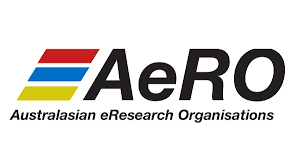Keywords: GPUs or Science or code or eResearch or research software
-

Intersect Australia
Intersect helps researchers increase their impact through expert people, a vibrant member...
51 training material46 upcoming event (942 past event)Intersect Australia https://www.intersect.org.au https://dresa.org.au/content_providers/intersect-australia Intersect helps researchers increase their impact through expert people, a vibrant member community and innovative technologies. Our services are targeted at enhancing capability (skills) through training and capacity (resources) of organisations, disciplines and research groups through an embedded team of experts. Intersect provides an extensive range of technology-focused training to researchers and higher degree research (HDR) students across Australia including training courses at the awareness, introductory, and intermediate to advanced levels, covering the breadth of research-relevant digital tools and technologies. The training is delivered by Intersect’s team of experts. /system/content_providers/images/000/000/008/original/atomic.s.taglogo.rgb_3x.png?1633564459 -

Pawsey Supercomputing Research Centre
The Pawsey Supercomputing Research Centre is 1 of 2 Tier 1 supercomputing centres in...
7 training material0 upcoming event (33 past event)Pawsey Supercomputing Research Centre http://pawsey.org.au https://dresa.org.au/content_providers/pawsey-supercomputing-research-centre The Pawsey Supercomputing Research Centre is 1 of 2 Tier 1 supercomputing centres in Australia. Pawsey prides itself on incorporating a range of best practices, features and solutions. Key features of the Centre include: - A purpose-built supercomputing building of more than 1000 m2 at Technology Park in Kensington, Western Australia; complete with scalable cooling and electrical services, to accommodate for expanding supercomputing infrastructure within the facility - A unique groundwater cooling system for removing heat from the supercomputer and dissipating this heat via an aquifer, 140 metres below the Centre, with no loss of groundwater. A photovoltaic system which has been incorporated into the building’s shaded façade, plus an extensive PV array on the roof of the building - This installation generates 140 kW of electricity onsite, which acts to offset the electrical and CO2 footprint of the Supercomputing Centre - Automated ‘intelligence’ incorporated into the building, with real-time monitoring, to facilitate efficient operation and support fine tuning of operations to reduce overall power costs /system/content_providers/images/000/000/004/original/PAW_RGB_H.png?1633498197 -

Australasian eResearch Organisations (AeRO)
AeRO is the industry association focused on eResearch in Australasia AeRO plays a critical...
0 upcoming event (1 past event)Australasian eResearch Organisations (AeRO) https://aero.edu.au/ https://dresa.org.au/content_providers/australasian-eresearch-organisations-aero AeRO is the industry association focused on eResearch in Australasia AeRO plays a critical coordination role for our members, who are actively transforming research via Information Technology. Organisations join AeRO to advance their own capabilities and services, to collaborate and to network with peers. AeRO believes researchers and the sector significantly benefit from greater communication, coordination and sharing among the increasingly different and evolving service providers. /system/content_providers/images/000/000/010/original/download.png?1633604230 -

Atlas of Living Australia
The Atlas of Living Australia (ALA) is a collaborative, digital, open infrastructure that pulls...
0 upcoming event (1 past event)Atlas of Living Australia https://www.ala.org.au/ https://dresa.org.au/content_providers/atlas-of-living-australia The Atlas of Living Australia (ALA) is a collaborative, digital, open infrastructure that pulls together Australian biodiversity data from multiple sources, making it accessible and reusable. The ALA helps to create a more detailed picture of Australia’s biodiversity for scientists, policymakers, environmental planners and land managers, industry and the general public and enables them to work more efficiently. The ALA is the Australian node and a full voting member of GBIF – the Global Biodiversity Information Facility – an international network and data infrastructure funded by the world’s governments and aimed at providing anyone, anywhere, open access to data about all types of life on Earth. /system/content_providers/images/000/000/017/original/ALA_Logo_Inline_CMYK.jpg?1652413583 -

VOSON Lab
The Virtual Observatory for the Study of Online Networks (VOSON) Lab is located in the Research...
1 training materialVOSON Lab http://vosonlab.net/ https://dresa.org.au/content_providers/voson-lab The Virtual Observatory for the Study of Online Networks (VOSON) Lab is located in the Research School of Social Sciences at The Australian National University. We are advancing the Social Science of the Internet through an innovative program of research, research tool development, teaching & research. Our funding is via the Australian Research Council (five grants to date), and a current Volkswagen Foundation (AI and Society of the Future Stream) grant led by Bielefeld University. VOSON tools have been publicly available since 2006. The current suite of VOSON R tools are available on CRAN and GitHub, with over 70K downloads to date, and are downloaded over 1K times per month. /system/content_providers/images/000/000/024/original/VOSONlab-logo.png?1664424886 -

Astronomy Data And Computing Services (ADACS)
Our Vision is to provide astronomy-focused training, support and expertise to allow astronomers...
Astronomy Data And Computing Services (ADACS) https://www.adacs.org.au https://dresa.org.au/content_providers/astronomy-data-and-computing-services-adacs Our Vision is to provide astronomy-focused training, support and expertise to allow astronomers to maximise the scientific return from data and computing infrastructure. ADACS is delivered jointly by Swinburne University of Technology, Curtin University, and Macquarie University. ADACS is funded under Astronomy National Collaborative Research Infrastructure Strategy (NCRIS) Program via Astronomy Australia Ltd (AAL). /system/content_providers/images/000/000/033/original/ADACSLogo.png?1708671870